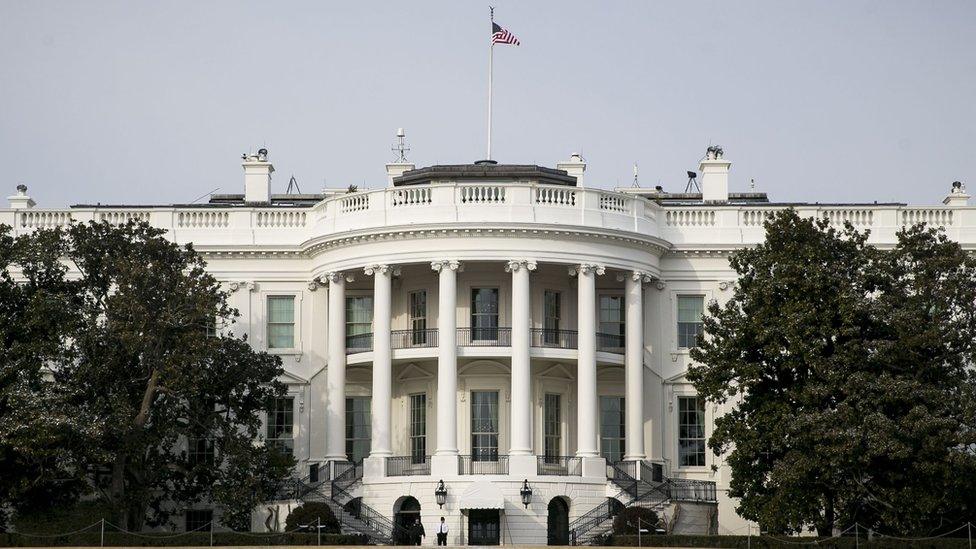Ronny Jackson: Trump veterans nominee bows out amid allegations
- Published
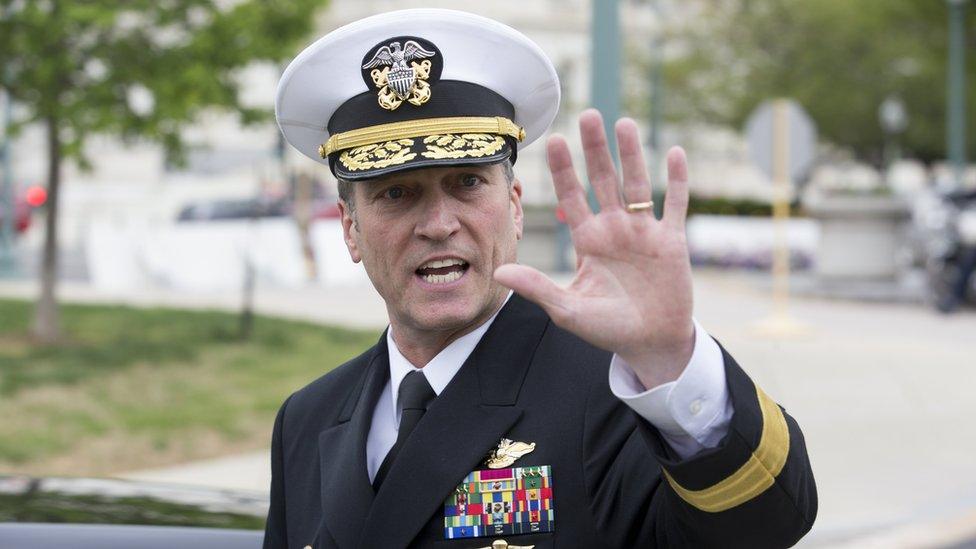
White House doctor Ronny Jackson has withdrawn as a nominee to lead the US Department of Veterans Affairs amid a flurry of misconduct allegations.
President Donald Trump's pick was accused of questionable drug prescriptions, drunkenness and wrecking a government vehicle.
In a statement, Dr Jackson condemned "baseless and anonymous attacks" on his character.
He had been due to have a Senate confirmation hearing on Wednesday.
But it was postponed because senators from both parties said they wanted to examine allegations by 23 of his colleagues and former colleagues.
What was Jackson accused of?
The claims were outlined in a two-page document, details of which Democratic staff of the Senate Committee on Veterans' Affairs supplied to US media.
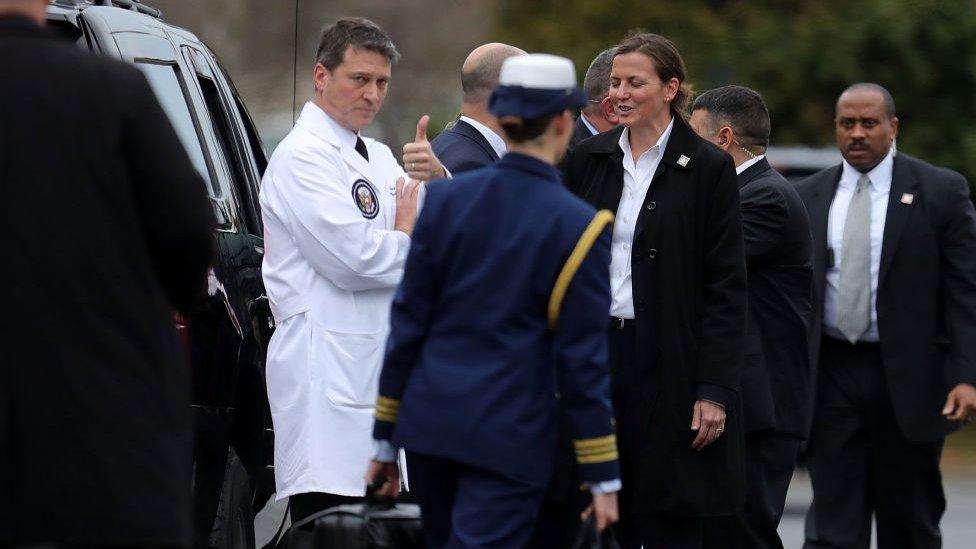
Dr Jackson gives a thumbs-up after Mr Trump's physical examination
According to the file, Dr Jackson was described as "flat-out unethical", "100% bad temper", "toxic", "explosive", "abusive" and "volatile".
He was also branded "the most unethical person I have ever worked with", "dishonest" and "despicable".
They also said Dr Jackson would "lose his mind over small things", and was "vindictive" and "belittling".
In his statement, the 50-year old Iraq War veteran hit back: "I expected tough questions about how to best care for our veterans, but I did not expect to have to dignify baseless and anonymous attacks on my character and integrity.
"The allegations against me are completely false and fabricated."
The last Veterans Affairs Secretary, David Shulkin, was fired by Mr Trump last month following a critical report by an internal watchdog.
How has White House responded?
Speaking by telephone to Fox News on Thursday morning, President Trump described Dr Jackson as the victim of "false allegations".
"They're trying to destroy a man," he added.
The Republican president reiterated his repeated claim that Democrats are "obstructionists", blocking his candidates for political purposes.
An agitated President Trump sounds off
Mr Trump has not said whom he would nominate instead.
But at a White House event honouring wounded soldiers later on Thursday, he singled out the acting veterans affairs secretary, whose name was added at the last minute to the guest list.
Robert Wilkie "is doing a great job over at the VA, I can tell you that", Mr Trump told his audience.
The president's daughter and adviser, Ivanka Trump, seemed to suggest Dr Jackson would remain in his current role.
She tweeted she would "look forward to continuing to see his warm smile each day at the White House!"
Allow X content?
This article contains content provided by X. We ask for your permission before anything is loaded, as they may be using cookies and other technologies. You may want to read X’s cookie policy, external and privacy policy, external before accepting. To view this content choose ‘accept and continue’.
What are Dr Jackson's qualifications?
The US Navy rear admiral has served as the White House physician since 2006. He made headlines after declaring Mr Trump to be in "excellent" health following a medical examination.
Dr Jackson told reporters that the president could live to the age of 200 if his diet improved.
The White House revolving door: Who's gone?
The physician was selected to lead the 360,000-employee veterans affairs department, with an annual budget of $186bn (£133bn).
President Trump has good 'genes', according to a White House doctor
But critics pounced on Dr Jackson's lack of administrative experience, noting that he oversaw a medical staff of only about two dozen people at the White House.
Critics say the doctor's nomination was doomed from the start because he was never properly vetted by the White House.
Senator Patty Murray, a top Democrat on the veterans committee, said this week: "It is really frustrating to me that this administration continues to not vet or sloppily send over a nominee that leaves us having to really vet them and look at serious questions."
- Published24 April 2018
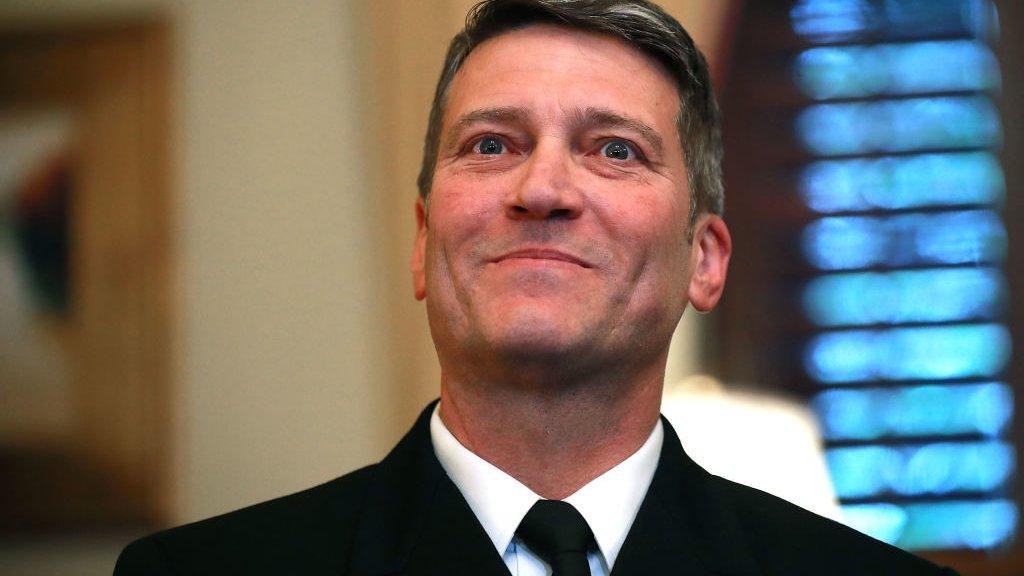
- Published25 April 2018
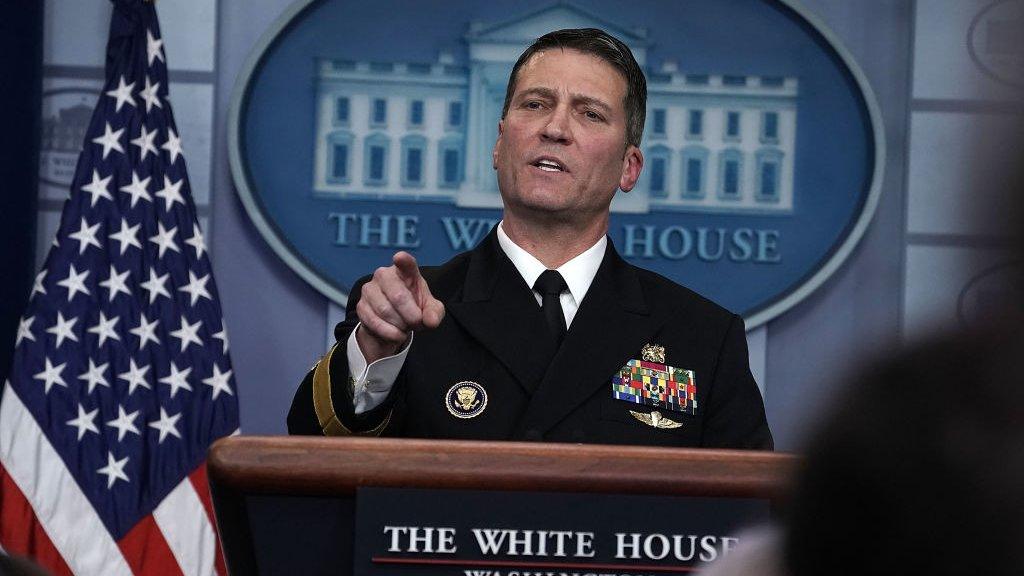
- Published15 December 2020
